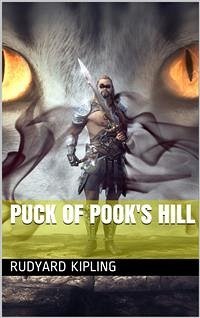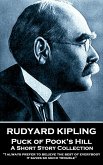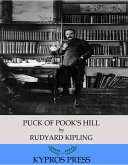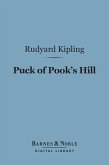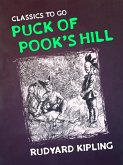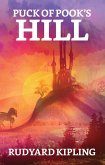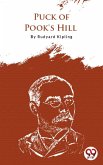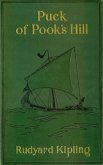Puck of Pook's Hill is a fantasy book by Rudyard Kipling, published in 1906, containing a series of short stories set in different periods of English history. It can count both as historical fantasy - since some of the stories told of the past have clear magical elements, and as contemporary fantasy - since it depicts a magical being active and practising his magic in the England of the early 1900s when the book was written. The stories are all narrated to two children living near Burwash, in the area of Kipling's own house Bateman's, by people magically plucked out of history by the elf Puck, or told by Puck himself. (Puck, who refers to himself as "the oldest Old Thing in England", is better known as a character in William Shakespeare's play A Midsummer Night's Dream.) The genres of particular stories range from authentic historical novella (A Centurion of the Thirtieth, On the Great Wall) to children's fantasy (Dymchurch Flit). Each story is bracketed by a poem which relates in some manner to the theme or subject of the story. Donald Mackenzie, who wrote the introduction for the Oxford World's Classics edition of Puck of Pook's Hill in 1987, has described this book as an example of archaeological imagination that, in fragments, delivers a look at the history of England, climaxing with the signing of Magna Carta. Contents Puck's song -- Weland's sword -- A tree song -- Young men at the manor -- Sir Richard's song -- Harp song of the Dane women -- The knights of the joyous venture -- Thorkild's song -- Old men at Pevensey -- The runes on Weland's sword -- A centurion of the Thirtieth -- A Britsh-Roman song -- On the great wall -- A song to Mithras -- The winged hats -- A Pict song -- Hal o' the draft -- A smuggler's song -- The bee boy's song -- 'Dymchurch Flit' -- A three-part song -- Song of the fifth river -- The treasure and the law -- The children's song.
Dieser Download kann aus rechtlichen Gründen nur mit Rechnungsadresse in A, B, BG, CY, CZ, D, DK, EW, E, FIN, F, GR, HR, H, IRL, I, LT, L, LR, M, NL, PL, P, R, S, SLO, SK ausgeliefert werden.

